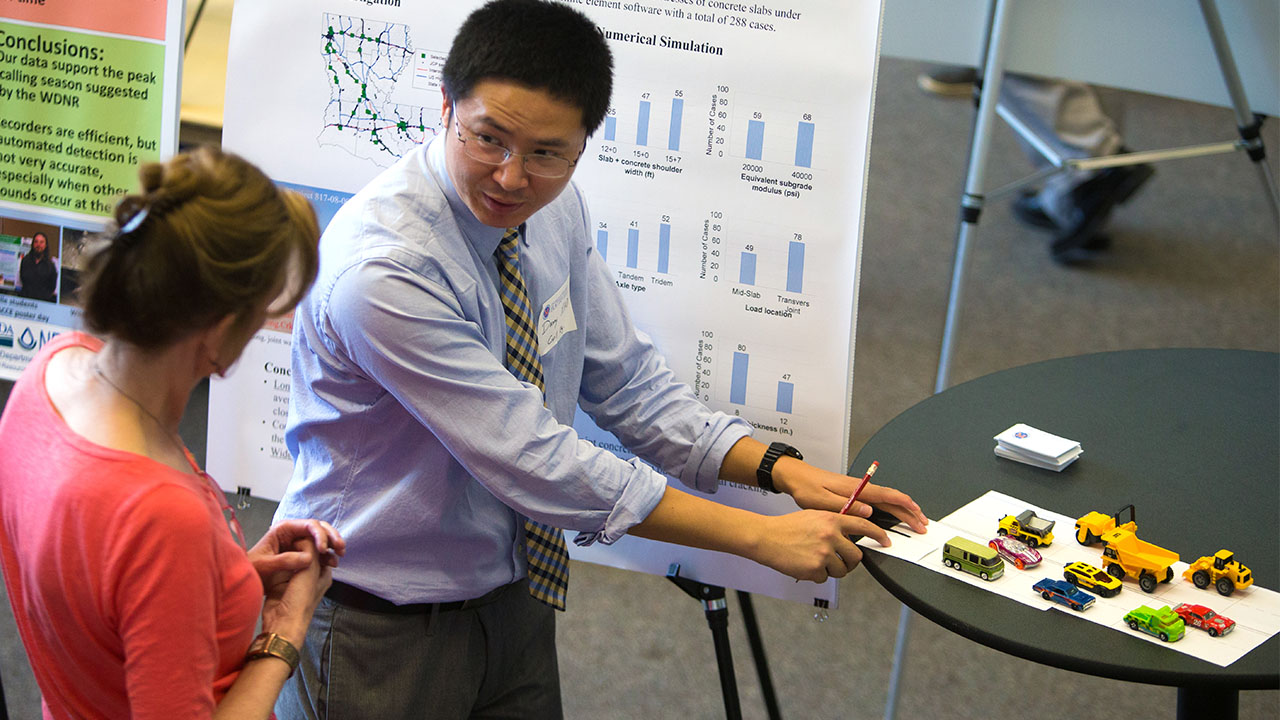
Concrete is tough stuff: it can form the foundation for a skyscraper or the face of a dam. But concrete’s reputation for strength belies a surprising number of weaknesses. It can erode, crumble and crack, leaving fissures for water to seep inside, where subsequent freezing and thawing can lead to even greater damage. UW-Platteville Civil Engineering Professor Dr. Danny Xiao is interested in all the ways concrete fails. His research focuses on making one of the most important building materials on Earth even better.
“Our society relies on concrete, literally. From tall skyscrapers to the small base of a light pole, from huge dams to small patios, concrete supports the prosperity of our society. In theory, concrete can last for hundreds of years,” Xiao said. “But in reality, premature failure is still happening, and unsatisfactory performance is even more common than we would like.”
Poor performance in concrete is perhaps best illustrated by the familiar springtime phenomenon of hitting a jarring bump in the roadway. “Joints are a primary area of failure in concrete pavement due to freeze and thaw damage and chemical attack from deicing salts. Penetrating sealers can be applied on concrete to reduce the ingress of water and chemicals to concrete, hence increasing the performance of concrete joints,” Xiao said.
This summer, Xiao worked on a Wisconsin DOT-funded study to discover the most effective combination of penetrating sealant, application method and application time.
The benefits of determining best practices are clear. “Durable concrete means longer service life of the infrastructure, means less maintenance, less down-time and less cost,” said Xiao. “For example, we would encounter less traffic congestion on highways during summer travel season if the concrete needed less maintenance.”
In true Pioneer fashion, Xiao is conducting his research in partnership with a group of undergraduate students at all stages of their college career. “Although students with some basic knowledge of concrete (such as Chemistry for Engineers, Introduction to Infrastructure, and Construction Materials) are preferred, students with all levels of knowledge and background can work on this research,” said Xiao. “In my opinion, students learn the most and perform the best when they have interest in the subject and the curiosity to ask why.”
Along with a strong working understanding of concrete, students will leave Xiao’s lab with some marketable skills. “Through working on this research project, students will develop several skills such as literature review, critical thinking, experimental design, laboratory testing, data analysis and communication through technical writing and oral presentation. These skills are useful for both conducting scientific research and performing engineering design,” said Xiao, whose former students have gone on to top graduate schools and highly respected engineering firms.
Those skills should come with a sense of satisfaction: in helping Xiao discover better ways to care for concrete, the undergraduate researchers of UW-Platteville will be helping lay the foundation for a stronger society.